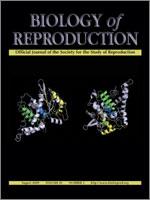Loss-of-function mutation of the Kit gene causes a severe defect in spermatogenesis that results in infertility due to the inability of its cognate ligand, KIT ligand (KITL), to stimulate spermatogonial proliferation and differentiation. Although self-renewal of mouse spermatogonial stem cells (SSCs) depends on glial cell line-derived neurotrophic factor (GDNF), there is no unequivocal evidence that SSCs with a KIT deficiency can self-renew in vivo or in vitro. In the testis of Wv/Wv mice, in which the KIT tyrosine kinase activity is impaired, spermatogonia with SSC phenotype were identified. When Wv/Wv spermatogonia were cultured in an SSC culture system supplemented with GDNF in a 10% O2 atmosphere, they formed clumps and proliferated continuously. An atmosphere of 10% O2 was better than 21% O2 to support SSC self-renewal. When Wv/Wv clump-forming germ cells were transplanted into testes of infertile wild-type busulfan-treated mice, they colonized the seminiferous tubules but did not differentiate. However, when transplanted into the testes of infertile W/Wv pups, they restored spermatogenesis and produced spermatozoa, and progeny were generated using microinsemination. These results clearly show that SSCs exist in Wv/Wv testes and that they proliferate in vitro similar to wild-type SSCs, indicating that a functional KIT protein is not required for SSC self-renewal. Furthermore, the results indicate that a defect of KIT/KITL signaling of Wv/Wv SSCs does not prevent spermatogonial differentiation and spermatogenesis in some recipient strains.
How to translate text using browser tools
15 April 2009
Spermatogonial Stem Cells Derived from Infertile Wv/Wv Mice Self-Renew In Vitro and Generate Progeny Following Transplantation
Hiroshi Kubota,
Mary R. Avarbock,
Jonathan A. Schmidt,
Ralph L. Brinster
ACCESS THE FULL ARTICLE

Biology of Reproduction
Vol. 81 • No. 2
August 2009
Vol. 81 • No. 2
August 2009
germline stem cells
growth factors
spermatogenesis
spermatogonial stem cells
testis




